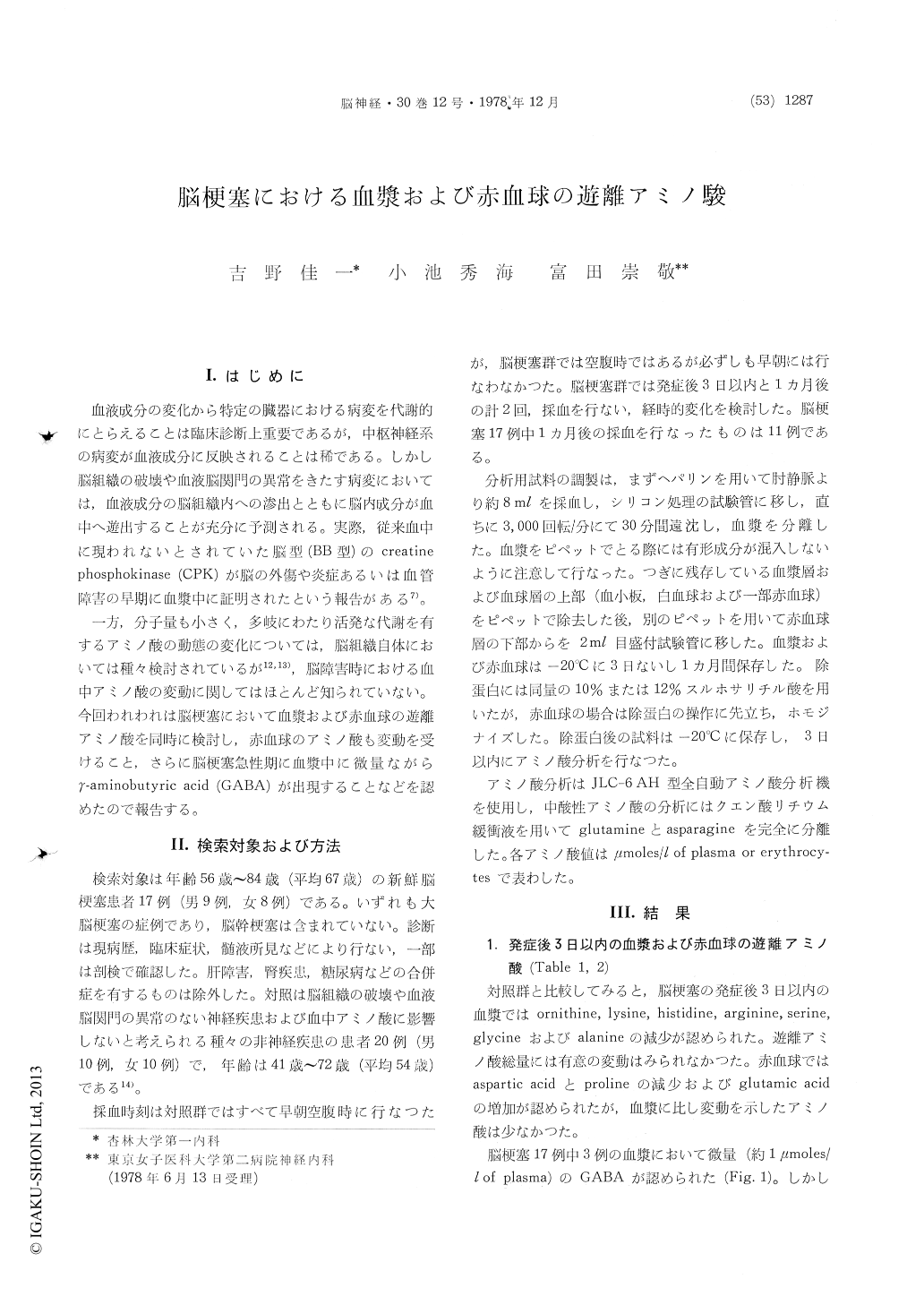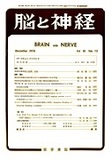Japanese
English
- 有料閲覧
- Abstract 文献概要
- 1ページ目 Look Inside
Ⅰ.はじめに
血液成分の変化から特定の臓器における病変を代謝的にとらえることは臨床診断上重要であるが,中枢神経系の病変が血液成分に反映されることは稀である。しかし脳組織の破壊や血液脳関門の異常をきたす病変においては,血液成分の脳組織内への滲出とともに脳内成分が血中へ遊出することが充分に予測される。実際,従来血中に現われないとされていた脳型(BB型)のcreatinephosphokinase (CPK)が脳の外傷や炎症あるいは血管障害の早期に血漿中に証明されたという報告がある7)。
一方,分子量も小さく,多岐にわたり活発な代謝を有するアミノ酸の動態の変化については,脳組織自体においては種々検討されているが12,13),脳障害時における中アミノ酸の変動に関してはほとんど知られていない。今回われわれは脳梗塞において血漿および赤血球の遊離アミノ酸を同時に検討し,赤血球のアミノ酸も変動を受けること,さらに脳梗塞急性期に血漿中に微量ながらγ—aminobutyric acid (GABA)が出現することなどを認めたので報告する。
Free amino acids were quantitated on a JLC-6AH amino acid analyzer in blood plasma and erythro-cytes from 17 patients with cerebral infarction. Collection of blood samples was performed within 3 days from attack and at 1 month after attack. Comparison was made to the values of 20 control subjects. The following results were obtained.
(1) Among 27 amino acids, 7 were decreased in plasma, and 2 were decreased and 1 was increased in erythrocytes within 3 days from attack. At 1 month after attack, 3 amino acids in plasma and 5 in erythrocytes were reduced. These results indicate that rather continuous changes occur infree amino acids after the attack of cerebral infarction not only in plasma but also in erythro-cytes.
(2) In comparison between plasma and erythro-cytes, most of the changes were observed in different amino acids respectively. This might be due to the differences in the pool size and the turnover of amino acids between the two.
(3) The reduction of ornithine, lysine, histidine, arginine, serine, glycine and alanine in plasma, and the elevation of glutamic acid and the reduction of proline in erythrocytes observed within 3 days after onset were alleviated in degree at 1 month. These changes may have some correlation with the cerebrovascular attack.
(4) The reduction of threonine in plasma, and of aspartic acid, threonine, methionine, leucine and phenylalanine in erythrocytes were more marked at 1 month after onset than the initial stage. These changes seem to be secondary phenomena, not re-flecting the accident in the cerebral tissue.
(5) However, it should be stressed that γ-amino-butyric acid (GABA) was detected in plasma of 3 patients during the initial stage. This was con-sidered to be possibly derived from damaged tissue in brain.

Copyright © 1978, Igaku-Shoin Ltd. All rights reserved.


